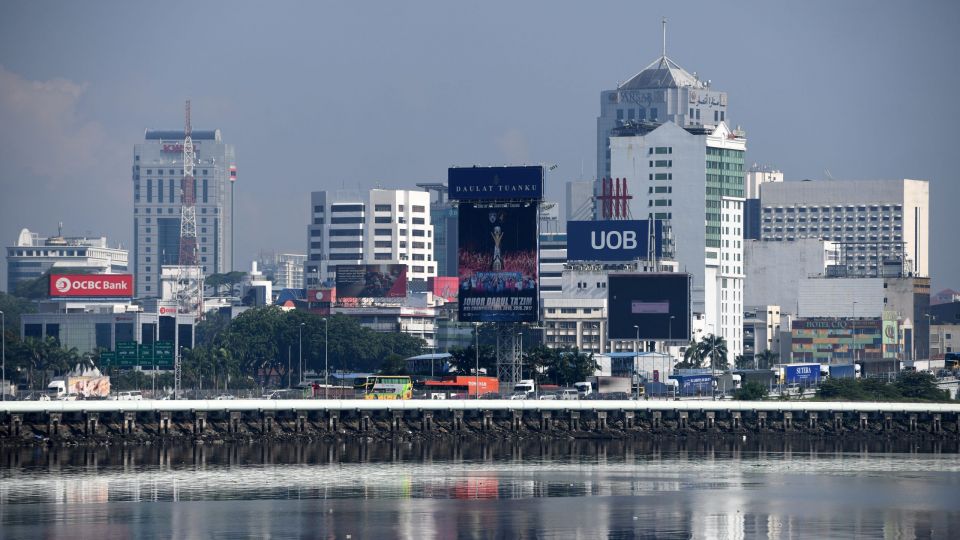March 11, 2020
Muhyiddin’s government has 31 ministers, 37 deputy ministers after one MP turns down post.
Malaysia’s 31 Cabinet ministers and 37 deputy ministers were sworn in yesterday before the King at the grand palace in Putrajaya.
Earlier, six men were sworn in as senators in the Upper House of Parliament, allowing them to be inducted into the Cabinet.
The swearing-in ceremony was shown live on television, a day after Prime Minister Muhyiddin Yassin unveiled his list of Cabinet ministers from his Perikatan Nasional (PN), or National Alliance, that is made up of four factions.
The line-up did not have a deputy prime minister, but has four men as senior ministers who oversee the economy, security, infrastructure development and social affairs.
The ceremony witnessed by Sultan Abdullah Ri’ayatuddin at Istana Melawati took place just 21 months after the Pakatan Harapan government was sworn in before the King’s predecessor, Kelantan’s Sultan Muhammad V.
Istana Melawati in Putrajaya is different from the national palace Istana Negara in Kuala Lumpur, where part of the recent political drama took place.
Tan Sri Muhyiddin and his wife Puan Sri Noorainee Abdul Rahman were seated in the front row at the ceremony, not far from the ruler’s throne.
The ministers and deputy ministers appeared before Sultan Abdullah in groups of between five and seven, reading from prepared texts that they will be loyal to the country, defend the Constitution and keep government secrets safe.
The ceremony started with the swearing-in of the four senior ministers, the finance minister and two ministers from the non-Malay/Muslim community.
PN’s four factions comprise Mr Muhyiddin’s Parti Pribumi Bersatu Malaysia, the Umno-led Barisan Nasional (BN), Parti Islam SeMalaysia (PAS) and Gabungan Parti Sarawak (GPS).
Two of the four senior ministers are from Bersatu – Datuk Seri Azmin Ali who is in charge of the economy, and Mr Mohd Radzi Md Jidin who will look after education and social affairs.
Umno vice-president Ismail Sabri Yaacob is senior minister in charge of security and defence minister, and the infrastructure development portfolio is handled by Datuk Seri Fadillah Yusof from GPS.
The Cabinet includes Umno figures who were also ministers in the previous BN administration.
Datuk Seri Hishammuddin Hussein is the new foreign minister and Mr Khairy Jamaluddin takes up the science, technology and innovation portfolio.
There were to be 38 deputy ministers sworn in, but an MP from Sarawak turned down the post and his Progressive Democratic Party – part of the GPS faction – indicated that MP Tiong King Sing deserved to be a full minister.
The six new senators include finance minister Tengku Zafrul Tengku Abdul Aziz, former chief executive of CIMB, one of the largest regional banks, and former Federal Territories mufti Zulkifli Mohamad Al-Bakri, the de facto minister-in-charge of Islamic affairs.
Of the other four senators, two are from the Malaysian Chinese Association – Mr Lim Ban Hong is the deputy minister for international trade and industry, and Mr Mah Hang Soon is deputy education minister 1. The other two are BN’s Datuk Ahmad Masrizal Muhammad, who is deputy environment minister, and Mr Wan Ahmad Fayhsal Wan Ahmad Kamal from Bersatu as deputy minister for youth and sports.
They took their oaths in front of Upper House president S. A. Vigneswaran.
This is not the first time that the government has appointed non-politicians as senators before taking them into the Cabinet.
A prominent example is former second finance minister Nor Mohamed Yakcop. The minister served for the maximum six years as a senator, before winning in the 2008 election as an MP to serve as minister in charge of the Economic Planning Unit.
Under the Malaysian legislative system, all Bills passed by MPs in the Lower House, or Dewan Rakyat, must generally be approved by senators in the Upper House, or Dewan Negara.
Of the maximum 70 senators that can be appointed to the Upper House, 26 are elected by Malaysia’s 13 state assemblies, with two senators for each state. The other 44 senators are appointed by the Malaysian King, with advice from the government of the day.
PAS deputy president Tuan Ibrahim Tuan Man, who is the environment minister, said: “The focus of this coalition in terms of the economic factor is to convince foreign investors (to return).”
He added in a Facebook posting yesterday: “It must also focus on restoring peace and harmony.”


